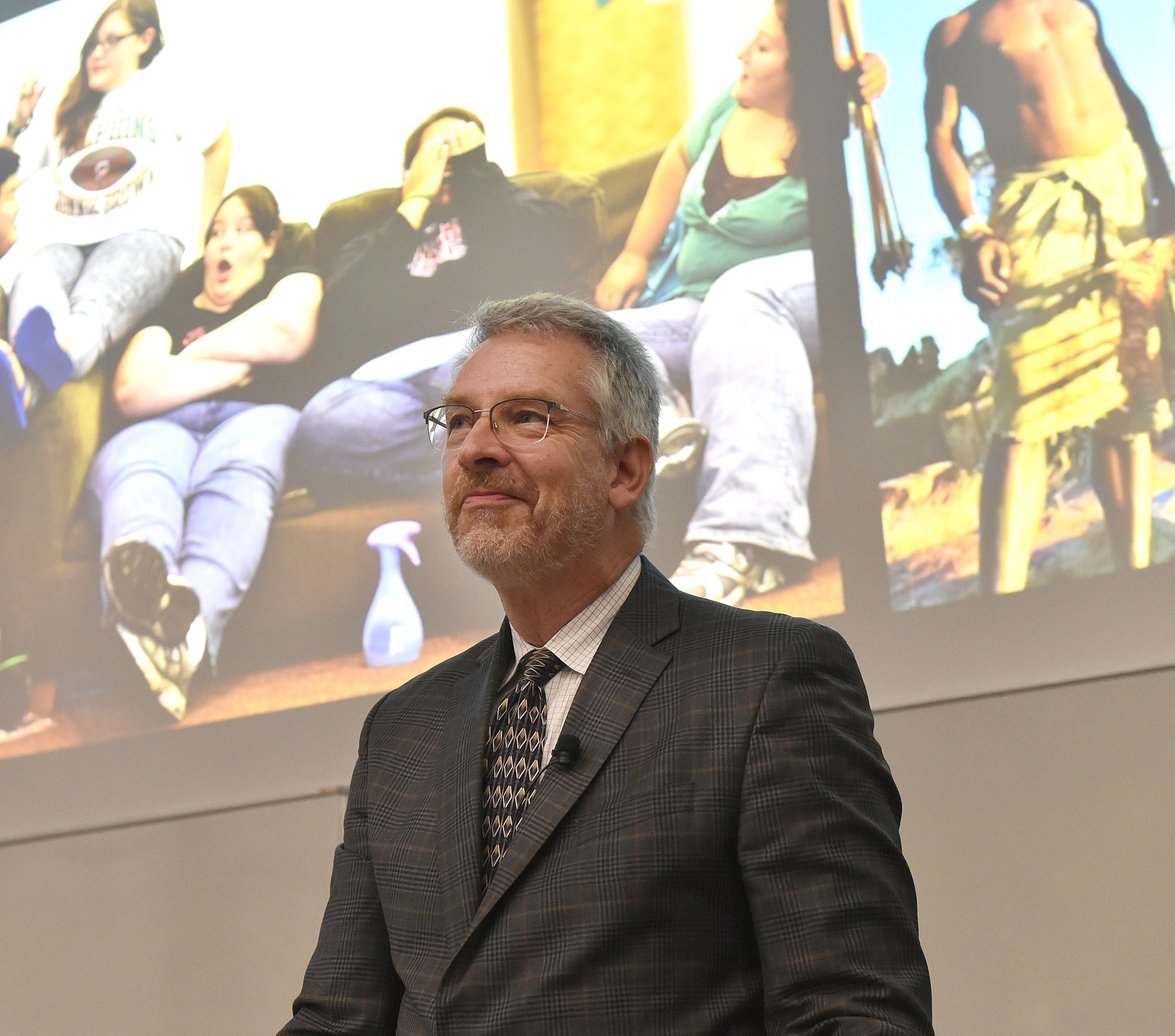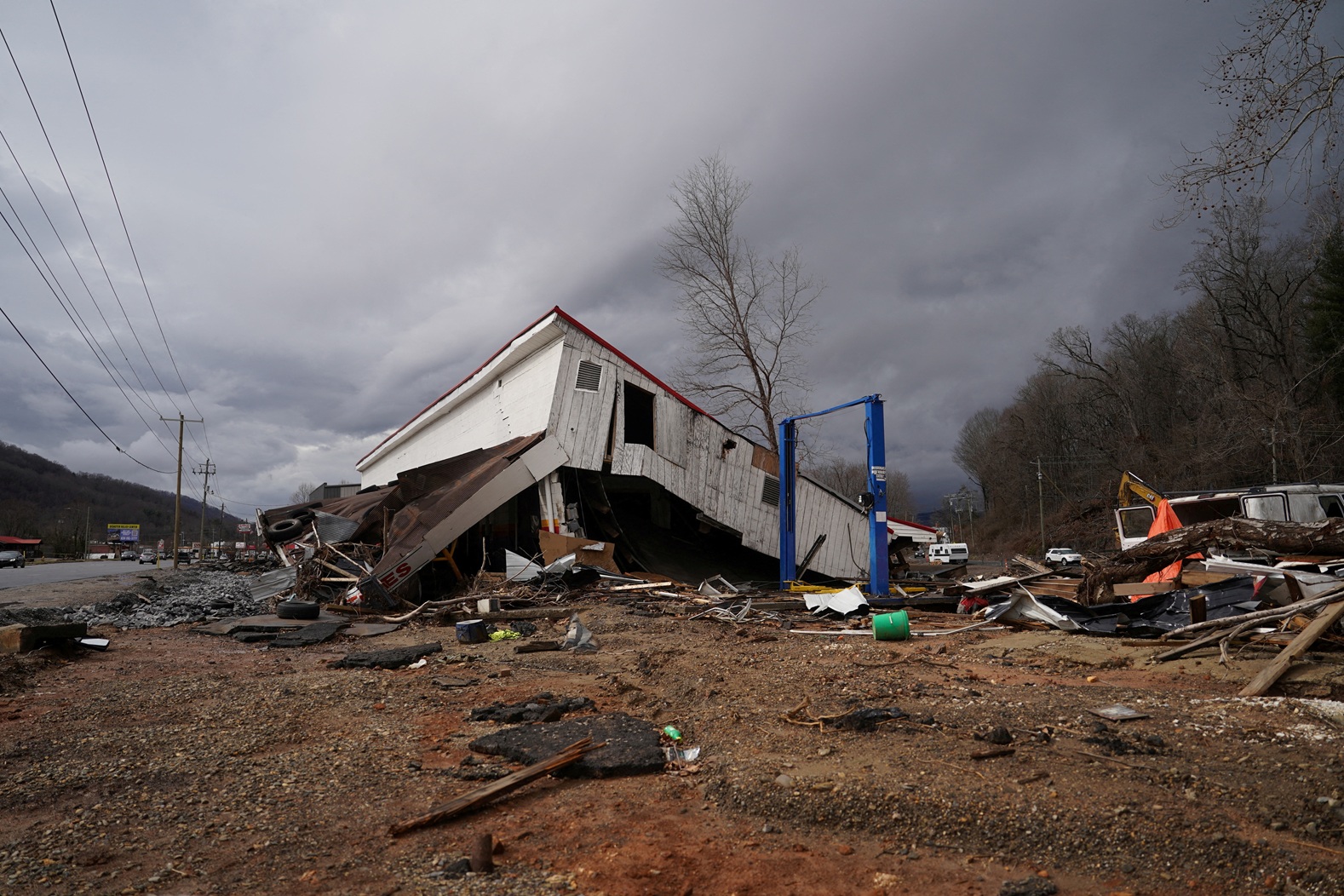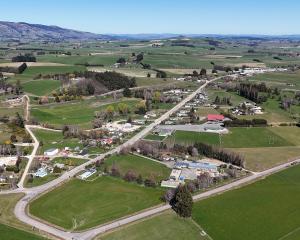
Yes, Prof Brad Gregory confirms, Pope Leo XIV certainly was very big news in the United States.
That was to be expected where the professor works, at the Catholic University of Notre Dame, in Indiana. He’s the university’s Henkels Family College Professor of History.
But the news of Cardinal Robert Prevost’s elevation wasn’t just the talk of the campus.
"I was really interested in the New York Times," Prof Gregory says. "Not necessarily a newspaper always friendly to the Catholic Church, but Pope Leo was in the headlines for days after he was chosen."
The professor is optimistic Leo XIV can be a force for good, in a world that could do with some, encouraged by the extent of that interest and assessments made of the man. The fact he’s American — Prof Gregory is quick to claim a connection, they’re both from Illinois — is part of the picture, but in a nuanced way.
"So as one commentator said, he’s the least American of the American cardinals. And I think that’s positive. So he’s both American, but he’s also got a real distance from that."
It’s clear the professor sees the potential for the Vatican to provide a balancing narrative to those emanating from various temporal seats of power.
One of the New York Times’ columnists wrote in an op-ed shortly after Pope Leo was elected, that Donald Trump is no longer the most important American in the world, Prof Gregory recalls, with approval.
It’s a particularly pointed observation given President Trump’s use of the Bible as a prop for his politics. Indeed, during a time when politics in the US is often coloured by various shades of religious millenarianism.
That would include bunker-America provocateur Steve Bannon, of the War Room podcast, a foghorn for "Catholic Nationalism" on the right of US politics.
And JD Vance, a recent Catholic convert from Appalachian Protestantism, who, in a somewhat extraordinary achievement for the 21st century, managed to get ecclesiastical Latin into the headlines, arguing for a Trump-friendly framing of the Augustinian notion of ordo amoris, the "order of love" to justify the administration’s immigration policies.
According to Vance, ordo amoris means we should first love, or prioritise, our family and community over foreigners.
This, he seemed to be saying, was the way of the world — where the strong do what they can and the weak suffer what they must. See also the cuts to USAID programmes.
Pope Francis waded in saying "Christian love is not a concentric expansion of interests that little by little extend to other persons and groups".
Prof Gregory is team Francis. At the very mention of Vance, he recoils.
"Yes, it’s completely antithetical to the way I understand Christian ethics," Prof Gregory says of the vice-president’s take on ordo amoris.
"I mean, the parable of the Good Samaritan, right?"

In September last year, a couple of months before the US presidential election, he wrote to the New York Times.
"It’s sad that Mr Vance, a recent convert to Catholicism, has agreed to be the running mate of this Frankenstein monster of the vices," he wrote.
The professor explains that the paper had run a prominent article about Vance and his conversion.
"I read that article and I was filled with disgust and disdain because it made it seem like there’s this intrinsic connection between Catholicism and Trumpism. There isn’t.
"I basically said as a Catholic intellectual and professional historian, I want to take issue with the impression created by this article."
Any Catholics who thought that Trumpism or Project 2025 was the way to deal with pressing environmental issues or the country’s chasmic socio-economic discrepancies would soon be disabused.
The professor pauses to ask whether the term "integral Catholicism" is familiar. It’s been getting some attention stateside lately.
"So, this idea that we really have to reintegrate church and state and it has to be a uniform society, then everything will be fine," he explains. "No, we tried that in the Middle Ages. It was a disaster."
Historians are mortified by what’s going on in the US, he says.
"We know too much. We know what this looks like and how it’s likely to play out. It’s horrifying."
Anybody who thinks these are promising ways to address the real problems of the US, he wrote in the New York Times letter, should read up on Mussolini’s Italy and Franco’s Spain. The Catholic fascisms of the 20th century.
Prof Gregory’s particular area of expertise is a little earlier, Western Europe in the Reformation era — taking in the European wars of religion.
And it’s his focus on deepening our understanding of the impacts of such crucial periods of history that has brought the American professor to Dunedin.
This past week he began delivering the Thomas Burns Memorial Lectures for 2025 — a biennial event named for the University of Otago’s first chancellor. The series continues in the coming week.
It’s Prof Gregory’s second attempt at the Burns lectures. He was ready to go in 2020, then Covid hit and he caught the last plane out of the country back to the US.
Since then his field of interest has broadened, so the 2025 lecture series encompasses "Christians, Consumption, and Climate Change: Christianity between the Last Ice Age and the Anthropocene". It’s based on a book project with the working title The Way of the World: Power, Wealth, and Civilization from the Last Ice Age to the Anthropocene.
Both travel forwards and backwards from the Reformation in an ambitious fashion — without abandoning it as a pivotal node in humanity’s contemporary story.
The Way of the World shapes as one of those sweeping histories, a Sapiens or perhaps something to rival David Graeber and David Wengrow’s The Dawn of Everything, that gives context to our contemporary moment and its attendant, almost overwhelming, challenges.

That’s because, he says, the time in which we live, the Anthropocene, has arrived complete with a super wicked problem.
"It encompasses the entire planet. It involves all human beings in one way or another," he says. "Everything we are continuing to do is contributing to making it worse. And there don’t seem to be the kinds of geopolitical, institutional, co-operative, collaborative mechanisms in place for us to fix the problem on a planetary scale.
"My wife says the only reason you can even continue to work on this project is because you have a sunny disposition to begin with."
We are, of course, talking climate change. The potentially civilisation-destroying phenomenon that appears hardwired into the way we live. Not just that, the Anthropocene is a portmanteau that takes in all the plagues we’ve visited on Creation. But climate change has its hand up as the most virulent strain.
As the professor points out, in 2023 and 2024 we collectively emitted more CO₂ into the atmosphere than ever before. We’re burning fossil fuels like we’re happy for there to be no tomorrow, melting the poles, acidifying the ocean, filling the biosphere with microplastics, treating Creation like a disposable coffee cup.
However, Prof Gregory leans into that sunny disposition and holds on to the belief that scholarship has a role to play. If we better understand how we got here, we’ll be in a better position, in principle, to find solutions. It’s the historian’s credo.
Prof Gregory has long been extrapolating learnings from his work on the Reformation forward through the centuries. His research previously revealing how the religious conflicts of the 16th and 17th centuries have shaped Western modernity to the present.
Extending the boundaries of that work to take in the entirety of the Holocene, the 11,700 years of relatively settled climate since the Last Ice Age in which human civilisation has flourished, his latest project builds on the professor’s "non-supersessionist" understanding of historical change.
"In the sense that once the past is, once events end, their effects don’t necessarily cease. Or as one scholar recently has put it, histories don’t end, they accrete."
In the first of his lectures, Prof Gregory explained that, because the present is the product of the past, the Anthropocene is open for historical investigation as the product of the changes our species has brought about.
"At the most basic level, the Anthropocene is the outcome of large numbers of people pursuing a historically constructed, globalised, modern way of life, one premised on unrestricted individual consumption and perpetual economic growth, powered by fossil fuels and ever-expanding technology."
"Historically constructed" is the key to it. Because the way things are, wasn’t always so. Prof Gregory joins Graeber, Wengrow and others, time travelling back to earlier millennia of the Holocene to witness the light-footed lifeways of our hunter-gatherer ancestors. In the epoch since, we’ve abandoned their communal-minded equality for hierarchy and stratification, establishing the "way of the world" for which the professor has named his book. The way of the world in which there are fortunes for the few and misfortune for the many.
In terms of explanations, Prof Gregory has one ready to go for the Anthropocene — the posited successor to the Holocene dating from about the middle of last century.
It’s immediate cause can be found in the Reformation, he says.
The war and tumult that resulted from the doctrinal debate kicked off by Martin Luther’s ninety-five theses of 1517 ended in an accommodation with unintended consequences. Consequences that reverberate still in the climate crisis.
The European wars of religion were epic, ruinous and inconclusive. So, Europeans agreed to disagree — more or less — and move on.
"By the middle of the 17th century or so, Catholics and Protestants across national lines, across linguistic lines, across lines that define their confessional identities, in effect decide in significant numbers that they would rather go shopping than continue to fight about religion. And essentially that’s what we’re still doing."
They swapped the good life — informed by an imperfect striving to follow the example of Jesus of Nazareth — for the "goods life".

This ties into the professor’s assertion, with which few would argue, that the origins of the Anthropocene and its crises are to be found in the West — supercharged by philosophies authored during the Enlightenment that cast the Earth as a resource to be exploited by humankind. The professor is looking at you, Francis Bacon.
Avarice, or greed, was rebranded as benign self-interest. And you, David Hume.
"It’s not that you’re greedy. You just like nice stuff," Prof Gregory explains of this revolutionary new perspective.
"Besides, everybody else is doing it. So, how bad can it be?"
The West cracked on with capitalism, colonisation and consumerism, putting aside that other "c" word that had hitherto had a very considerable say in the rhythm of life.
Christianity, the dominant religious tradition in the Western world since the 4th century, that warned against greed, taught that relinquishing possessions was a prerequisite for becoming a follower of Christ and commanded self-denial, endured in the private lives of some, but relinquished much of its influence on public life and commerce.
It’s a significant observation for Prof Gregory, as a Christian himself, a member of a Catholic institution.
But he says he’s always tried to make his scholarship as an historian not depend on his faith commitments.
"I don’t lead with my faith."
However, in researching his big new book, there are places where the historical figure of Jesus provides important commentary.
For example, he references James Scott’s book Against the Grain, which explained the crucial role grain played in the rise of the earliest states, and how its surpluses were the foundation on which civilisation grew, attended always by warfare and inequality.
"And in conjunction with reading other sorts of things, I started to learn enough about the ancient world to see how the central figure in the tradition that I do work in, Jesus of Nazareth, is related to a world in which power and wealth are extraordinarily unequally distributed."
By the time he was born in the reign of Augustus Caesar, power had been concentrated at the top of that voracious apex predator, the Roman war state — an example of historian Walter Scheidel’s original 1%.
Rome was the latest iteration of "the way of the world", a state, an empire in which good fortune was for the few at the expense of the many. And the teaching of Jesus stands as a response to that.
"All of that was the kind of back story to understanding what Jesus is saying about self-dispossession, you know, warnings about wealth, the dangers of acquisitiveness and so forth."
The world received another reminder of that perspective in the recent past, one Prof Gregory was pleased to see.
Pope Francis’ 2015 encyclical letter, Laudato Si: On care for our common home, said "if we no longer speak the language of fraternity and beauty in our relationship with the world, our attitude will be that of masters, consumers, ruthless exploiters".
The response to Laudato Si showed just how many people were open to a counterbalancing morality, Prof Gregory says.

It’s a point not so very far from one made by journalists Naomi Klein and Astra Taylor in a recent piece for The Guardian, called The rise of end times fascism.
There they said America’s far right — including figures like Wānaka wannabe Peter Thiel, Vance’s billionaire mentor and another who now makes claims on Christianity — is pursuing a "supremacist survivalism". Benefits will accrue to the very few indeed.
In opposition to that clique’s "apartheid fantasies of bunkered safety" on a burning planet, the task is to build a wide and deep movement, as spiritual as it is political, the pair wrote.
What Jesus had to say about wealth, acquisitiveness and self-denial in the Gospels, is the focus of two of Prof Gregory’s lectures in the coming week.
The Nazarene’s third-decade common-era perspective was informed by the long experience of sustained extreme inequalities in the Ancient Near East, Prof Gregory says, and aimed to undo institutions of injustice and oppression through the voluntary renunciation and redistribution of possessions.
"His ascetic imperatives were directed against entrenched injustice, not towards safeguarding the natural world," the professor said in lecture one of his series.
"Yet the latent environmental significance of his admonitions was considerable because the anthropogenic imprint of ascetic self-denial is minimal, in contrast to the environmental impact of self-seeking consumption."
It’s an historical perspective.
The lectures
The Burns Lectures 2025 — Christians, Consumption, and Climate Change: Christianity between the Last Ice Age and the Anthropocene — continue this week at Archway 4 lecture theatre, starting at 5.15pm.
• Tuesday, May 27. Subverting the Way of the World: The Oblique Radicalism of Jesus of Nazareth
• Wednesday, May 28. Accommodating the Way of the World: Making Room for Mammon, Making Peace with Rome
• Thursday, May 29. Extending the Way of the World: Western Christianity from Constantine to the Anthropocene












